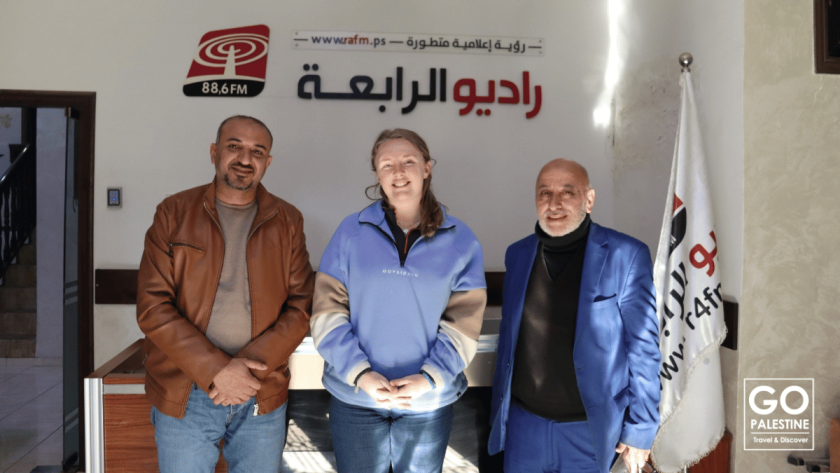My name is Jada and I decided to travel to Palestine during the holiday break for my Master’s program. Following an immersive study abroad program with my university in Spring 2019, I discovered GoPalestine and hoped to return to Hebron and Palestine. However, due to the 2020 Pandemic I decided to work to return to school this Fall for my Master’s in Northern Ireland.
I reconnected with GoPalestine and planned to stay in Hebron to continue learning Arabic and learn more about Palestinian media, specifically because I was interested in researching the effect of conflict on media operations and audience relationships for my dissertation. While I visited the Old City of Hebron and the Ibrahim Mosque on my previous program, I did not have an opportunity to explore and understand the city beyond the checkpoints boarding the Old City.
My visits and meetings with media executives and professionals in Hebron has illuminated new dimensions of life, culture, economy, political circumstances in Hebron and the broader Palestinian situation. Before arriving to Hebron, I was largely interested in the operations of Palestinian media including medium, story selection, ethics, and economic and political relationships. I entered with an awareness of Western media and some research background in Palestinian media, but I was not sure what operational similarities I would see.
Through the program I have visited three radio stations and will visit two more before I leave at the end of this week. From the conversations with the station executives and professionals, I learned about the political pressures, story development, production strategies, and economic impact on the various stations.
Reporting media in Palestine includes classic radio, but like the majority of the world, news is now established in the social media and online space. Regular programs are streamed on online platforms and live broadcasts are accessible later as well. The integration of online broadcasts and classic forms such as radio is in concern for the lifestyle of Hebron residents. Social media and online news allow for the audience to access information when it is convenient for them, rather than the single live broadcast on FM. Additionally this creates appeal to different age groups across audiences and overcomes the obstacles of political pressure and restrictions.
Generally, media in Palestine is monitored, but not only by the local audience, but by both the Palestinian Authority and Israel. Each professional I’ve spoken to has indicated direct experience with the shutting down of the station by Israeli government, pressures from both Palestinian Authority and Israeli government in terms of what is permitted or suggested to broadcast. According to a broadcasting professional, Palestinian radio stations utilizing FM waves are frequently commandeered by Israeli stations taking over that specific channel.
Additionally, Facebook pages for programs and journalists, according to directors and journalists, are blocked and taken down if the pages refer to occupation or the concern for current or released Palestinian prisoners. The active censorship requires Palestinian journalists and stations to create content unrelated to the Occupation or find new strategies to broadcast related information. These pressures dictate and limit what broadcasters are able to discuss; however, production also depends on economic factors and audience interest.
Conversations with professionals illuminated the struggle to fund radio and media production. Consistent with classical media, stations in Palestine generally rely on advertising relationships with local companies; however, following the COVID-19 Pandemic and the progression to social media, funding is especially challenging. Companies have diverted their advertising to internal marketing, including social media ad management.
Ultimately, Palestinian is corralled by the Conflict. While media outlets continuously find new strategies to circulate information as well as provide enjoyable content to their audiences, social media is the frontier. Due to broader monitoring by government and third-party corporations such as Facebook, content, journalists, and the audiences themselves are affected in the virtual space.
Reading Palestinian media requires questioning the position of the journalists and audience within the broader context of the Conflict. However, I am left questioning the relationship of Palestinian media with broader, international audiences, versus media addressing Palestinian issues from international, externally based producers. Who is telling the Palestinian story and who is able to tell the Palestinian story?

